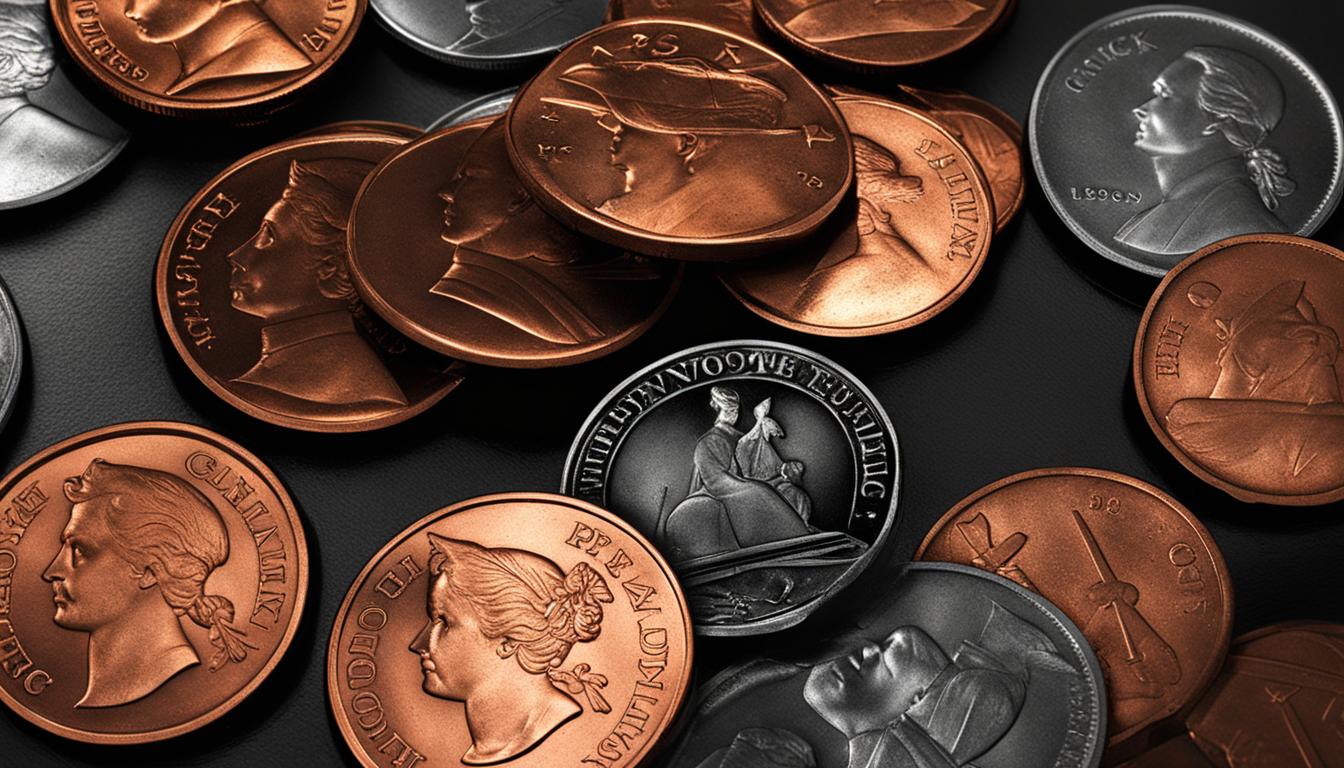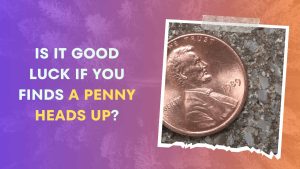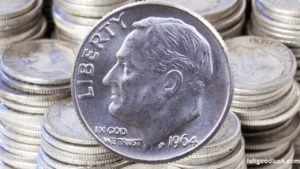Finding spare change like pennies and believing in their ability to bring good luck has been a long-standing tradition in many cultures. Ancient civilizations considered metals, such as copper, to be gifts from the gods and believed they could protect people from evil. This belief extended to pennies, which were associated with wealth and luck. Additionally, there is a superstition that finding a penny heads up brings good luck, while finding it tails up brings the opposite. The exact reasoning behind this is unclear, but it adds to the fascination with the good luck associated with pennies.
Contents
- 1 The Origins of the Penny Luck Superstition
- 2 The Psychology of Luck and Superstition
- 3 Ways to Embrace the Luck of a Penny
- 4 The Symbolism and Cultural Associations of Pennies
- 5 Conclusion
- 6 FAQ
- 6.1 What is the significance of finding a penny heads up?
- 6.2 Is there a specific reason why finding a penny tails up is considered bad luck?
- 6.3 Where does the belief in the good luck of finding a penny heads up come from?
- 6.4 How does the belief in good luck, including finding a penny heads up, affect human psychology?
- 6.5 What are some ways to embrace and celebrate the belief in the luck of a penny?
- 6.6 Are there any cultural associations with pennies and good luck?
- 7 Source Links
Key Takeaways:
- Finding spare change like pennies has long been associated with good luck in various cultures.
- Ancient civilizations believed that metals like copper were gifts from the gods and could protect against evil.
- Finding a penny heads up is considered a sign of good luck, while finding it tails up is believed to bring the opposite.
- The exact reason behind the association of heads or tails with good luck is unknown but adds to the intrigue.
- The belief in the luck of a penny taps into our innate desire to find patterns and assign meaning to random events.
The Origins of the Penny Luck Superstition
The belief in the good luck of finding a penny heads up can be traced back to ancient Roman times. The Romans believed that objects with a likeness or representation of a human form contained a spirit, which could either aid or hinder them. When they flipped a coin, they believed that the outcome was determined by the gods. Therefore, the face side of the coin, or “heads,” was associated with divine favor and, subsequently, good luck. This belief has evolved over time and has become ingrained in various cultures as the superstition of finding a penny heads up bringing good luck.
The significance of the heads or tails distinction in the context of good luck is fascinating. While the exact reasoning behind it remains unclear, the association between finding a penny heads up and a positive outcome has endured. It taps into our innate desire to seek patterns and meaning in random events, providing a sense of control and optimism. The belief in the power of a good luck coin flip has become deeply rooted in cultural traditions and superstitions, transcending generations.
| Origin | Belief |
|---|---|
| Ancient Rome | Face side of the coin (heads) associated with divine favor and good luck |
| Evolution | Superstition of finding a penny heads up bringing good luck across various cultures |
Throughout history, the belief in good luck has been tied to human psychology. Finding a penny heads up and interpreting it as a symbol of good luck can instill confidence, optimism, and positive thinking. It creates a mindset that expects favorable outcomes and influences actions and decision-making. The importance placed on the heads or tails distinction is a testament to our inclination to assign meaning to seemingly random events, seeking signs of good fortune in our daily lives.
The origins of the penny luck superstition may remain shrouded in mystery, but its enduring presence and cultural significance cannot be denied. Whether you believe in the power of a good luck coin flip or simply appreciate the symbolism behind it, the next time you find a penny heads up, let it serve as a reminder of the potential for positive outcomes and the power of optimism in your life.
The Psychology of Luck and Superstition
The belief in good luck, including finding a penny heads up, is often tied to human psychology. Humans are naturally inclined to seek patterns and meaning in random events as a way to make sense of the world. Finding a penny heads up and viewing it as a symbol of good luck can instill confidence, optimism, and positive thinking. This, in turn, can lead to a mindset that expects favorable outcomes and may even influence actions and decision-making. The interpretation of heads or tails in the context of good luck is a product of our inclination to assign meaning to seemingly random events.
People find comfort in the idea that they have a sense of control over their lives, even when faced with uncertainty. Believing in good luck provides a sense of agency and can offer a psychological boost during challenging or uncertain times. The act of finding a penny heads up becomes a ritualized experience, creating a positive association with the concept of luck. This belief can help individuals cope with stress, boost self-esteem, and maintain an optimistic outlook.
“Believing in the luck of a penny can have positive psychological effects, such as instilling confidence and optimism.”
The interpretation of heads or tails in the context of good luck can vary among individuals and cultures. Some may view heads as representing positive outcomes or success, while others may see tails as an opportunity for growth or change. The specific interpretation can be influenced by personal beliefs, cultural traditions, and individual experiences. Regardless of the precise interpretation, the belief in the power of a good luck coin toss ultimately serves as a source of hope and positivity for many people.
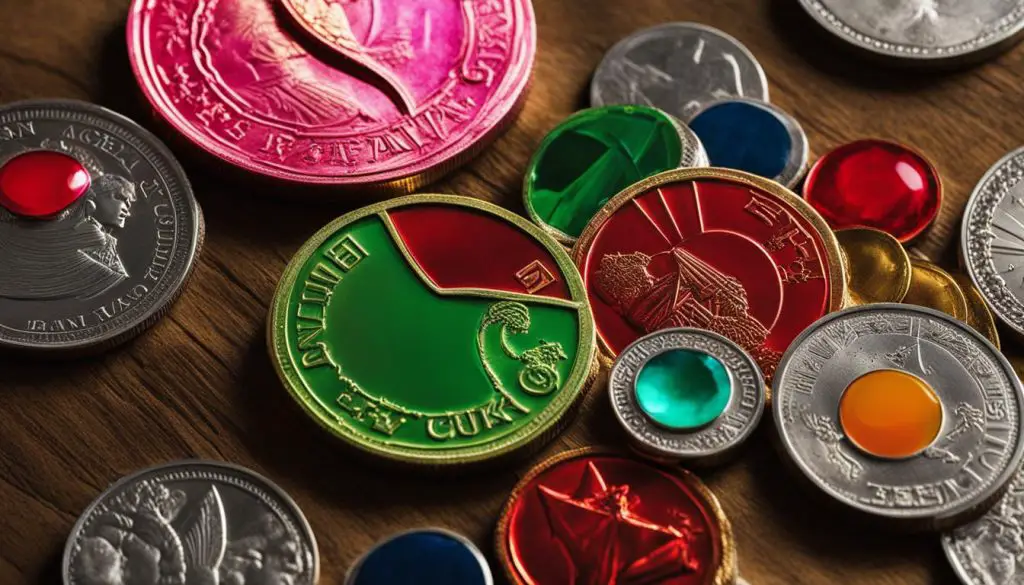
The Benefits of Good Luck Coin Toss
Believing in the power of a good luck coin toss can have several psychological benefits. Here are some of the ways it can positively impact individuals:
- Increased confidence: The belief in good luck can boost confidence levels and provide individuals with a sense of self-assurance. This can lead to a more positive mindset and greater willingness to take risks.
- Optimistic outlook: Viewing a penny heads up as a symbol of good luck can foster a sense of hope and optimism. This positive mindset can help individuals maintain a positive outlook, even in challenging situations.
- Reduced stress: Believing in good luck can serve as a coping mechanism during stressful times. It provides individuals with a sense of control and can help alleviate anxiety and worry.
- Positive decision-making: The belief in good luck can influence decision-making processes, leading individuals to make choices that align with their positive expectations. This can contribute to a more fulfilling and successful life.
| Table: Interpretation of Heads or Tails in Good Luck | |
|---|---|
| Interpretation | Meaning |
| Heads | Positive outcomes, success |
| Tails | Growth, change, opportunity |
The psychology behind the belief in good luck and the interpretation of heads or tails is a fascinating aspect of human behavior. It demonstrates our innate desire to find meaning and control in the unpredictable nature of life. Regardless of the origins or specific interpretations, the belief in the power of a good luck coin toss continues to provide comfort, hope, and positivity in the lives of many.
Ways to Embrace the Luck of a Penny
Once you find a penny heads up and believe in its potential for good luck, there are various ways to embrace and celebrate this belief. You can keep the penny as a secret lucky charm in your wallet or pocket, using it as a source of confidence throughout your day. Another idea is to turn the penny into a piece of jewelry, such as a pendant, to keep the luck close to your heart.
Some people use the penny as a unique bookmark or create a luck jar, where they collect pennies they find heads up over time. These practices help reinforce the belief in the power of a good luck coin flip. For example:
| Luck Jar Practice | Bookmark Practice | |
|---|---|---|
| Procedure | Collect heads-up pennies in a jar | Place the penny inside a book as a bookmark |
| Beliefs | The jar accumulates luck over time | Each time the book is opened, luck is invoked |
| Intentions | To attract good luck and positive energy | To have luck present during reading |
These practices not only serve as physical reminders of the belief in good luck but also create a connection between everyday objects and positive energy. It’s important to remember that the power of believing in good luck lies in the mindset it creates. By embracing these practices, you can cultivate a mindset that is open to favorable outcomes and opportunities.
So, the next time you find a penny heads up, let it serve as a reminder of the potential for good fortune and positivity in your life.
The Symbolism and Cultural Associations of Pennies
Pennies hold significant symbolism and cultural associations in various societies, going beyond their monetary value. In medieval times, pennies had substantial purchasing power, and their composition, often made of copper, was associated with divine protection and importance. Ancient cultures viewed coins, including pennies, as symbols of wealth, prosperity, and even luck. Today, different cultural traditions and rituals incorporate pennies into their practices, further emphasizing the enduring fascination and belief in the power of pennies for good luck.
For instance, in Irish culture, the half-penny is considered particularly lucky, and finding one is seen as a positive omen. Brides in some traditions place a penny in their shoe on their wedding day to symbolize wealth and good fortune in their marriage. Such cultural associations highlight the enduring belief in pennies as symbols of luck and prosperity.
Additionally, the act of flipping a coin to make decisions, such as heads or tails, has become ingrained in popular culture. While not directly tied to the superstition of finding a penny heads up, the concept of heads or tails has become synonymous with making a choice based on chance. This further reinforces the cultural significance of pennies and their association with luck.
Overall, the symbolism and cultural associations surrounding pennies as symbols of luck and wealth have endured through the ages. Whether as a representation of divine protection in ancient times or as a personal lucky charm in modern practices, pennies continue to capture our fascination and belief in the power of good luck.
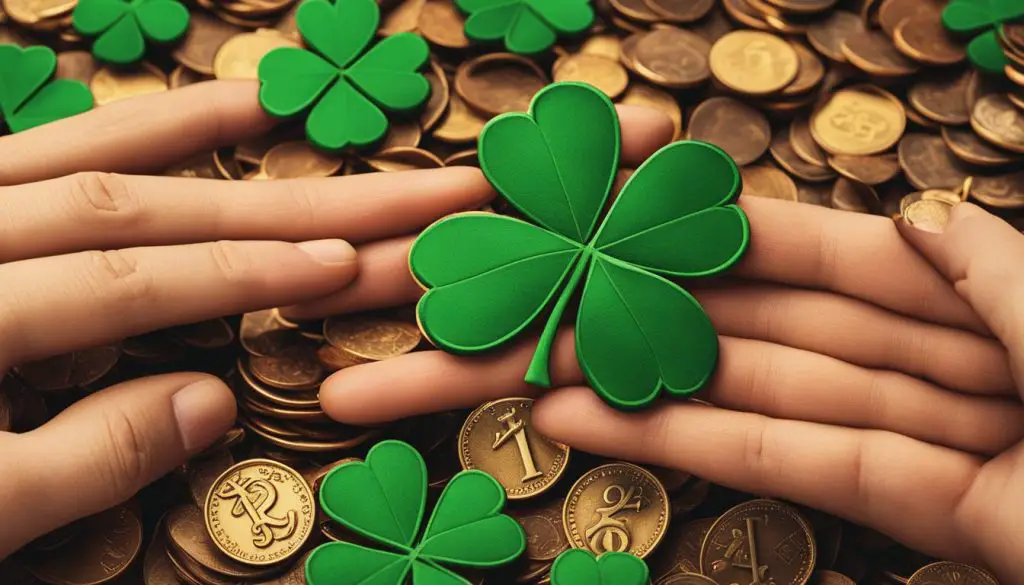
| Culture | Association |
|---|---|
| Irish | The half-penny is considered lucky. |
| Wedding traditions | A penny in the bride’s shoe for wealth and good fortune in marriage. |
| Popular culture | Flipping a coin as a decision-making tool. |
Conclusion
The belief in the heads or tails good luck superstition, particularly finding a penny heads up, is a captivating aspect of human psychology and cultural traditions. While the exact interpretation of heads or tails in good luck may vary, it taps into our inherent desire to seek patterns and ascribe significance to random occurrences.
By embracing the symbolism and cultural associations of pennies, we can amplify our belief in their power to bring good luck. The positive psychological effects, such as increased confidence and optimism, can have a profound impact on our lives. So, the next time you discover a penny heads up, let it remind you of the potential for good fortune and positivity that lies ahead.
Remember, the superstition surrounding a good luck coin flip is not just about chance, but about the meaning we assign to it. It is a reminder to stay open to the possibilities and opportunities that come our way, and to approach life with a mindset of optimism and expectation of favorable outcomes. So, embrace the heads or tails good luck superstition and let it be a guiding force in your journey towards success and happiness.
FAQ
What is the significance of finding a penny heads up?
Finding a penny heads up is believed to bring good luck.
Is there a specific reason why finding a penny tails up is considered bad luck?
The exact reasoning behind the belief that finding a penny tails up brings bad luck is unclear, but it adds to the fascination with the good luck associated with pennies.
Where does the belief in the good luck of finding a penny heads up come from?
The belief in the good luck of finding a penny heads up can be traced back to ancient Roman times, where the face side of a coin, or “heads,” was associated with divine favor and, subsequently, good luck.
How does the belief in good luck, including finding a penny heads up, affect human psychology?
Believing in the good luck of finding a penny heads up can instill confidence, optimism, and positive thinking, leading to a mindset that expects favorable outcomes and may influence actions and decision-making.
What are some ways to embrace and celebrate the belief in the luck of a penny?
Some suggestions include keeping the penny as a lucky charm, turning it into jewelry, using it as a bookmark, or creating a luck jar to collect pennies found heads up over time.
Are there any cultural associations with pennies and good luck?
Yes, pennies have symbolic and cultural associations in various societies, such as the Irish half-penny being considered lucky and brides having a penny in their shoe for good luck.

